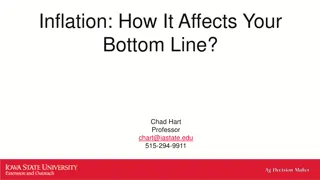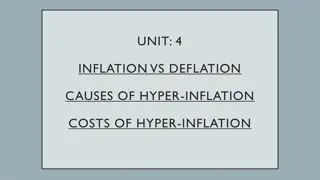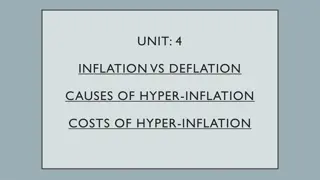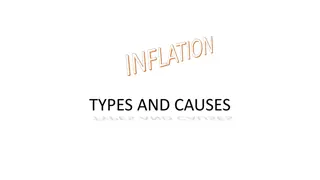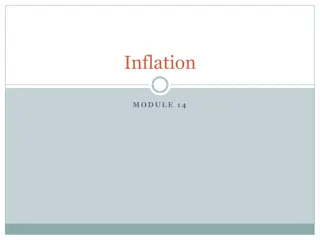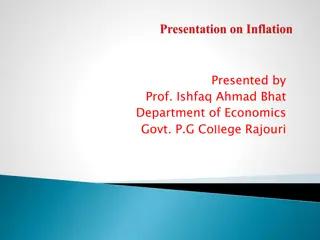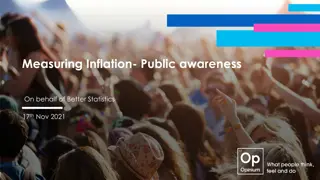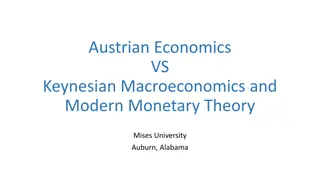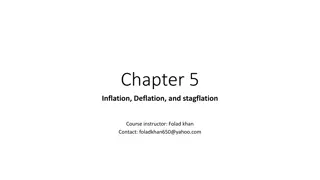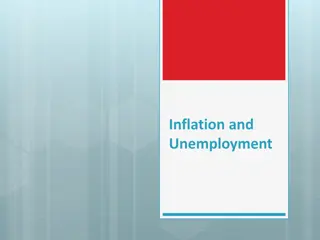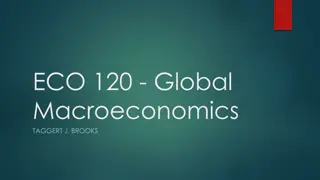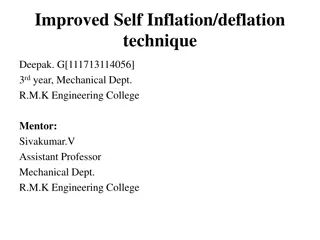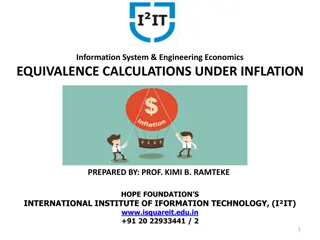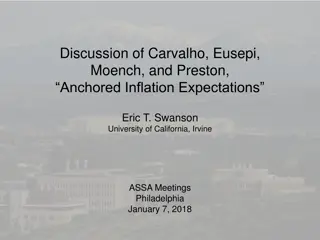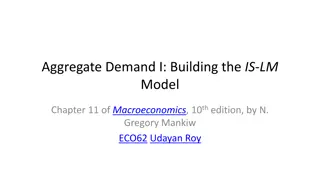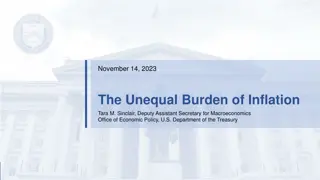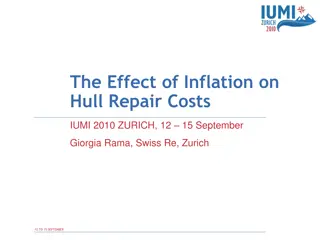Understanding Inflation: Types, Causes, Effects, and Control Measures in Macroeconomics
Inflation, the increase in the general price level over time, is explored in-depth covering different types like demand-pull and cost-push, their causes, effects on production, wealth distribution, employment, government investment, and purchasing power, along with measures to control inflation including monetary and fiscal strategies.
Download Presentation

Please find below an Image/Link to download the presentation.
The content on the website is provided AS IS for your information and personal use only. It may not be sold, licensed, or shared on other websites without obtaining consent from the author. Download presentation by click this link. If you encounter any issues during the download, it is possible that the publisher has removed the file from their server.
E N D
Presentation Transcript
COURSE: B.Sc. (PROGRAMME) IN ECONOMICS PAPER NAME MACROECONOMICS-I TOPIC-INFLATION YEAR- FIRST SEMESTER- 2 SESSION- 2020-2021 DATE OF LECTURE : 3/06/2021 PREPARED BY DR. KAMALIKA CHAKRABORTY ASSISTANT PROFESSOR (DEPARTMENT OF ECONOMICS) KHATRA ADIBASI MAHAVIDYALAYA, BANKURA,WEST BENGAL
What is inflation? Inflation is the increase in the general price level over a period of time.
Different types of inflation Demand Pull inflation Cost Push inflation Creeping inflation Walking inflation Galloping inflation Hyperinflation
Demand Pull inflation and its causes Demand pull inflation arises due to rise in demand for goods and services Causes Inflation Forecasts Economic Growth Rise in exports Rise in government spending Exorbitant rise in supply of money
Cost Push inflation and its causes Cost push inflation occurs when prices rise due to rise in cost of production and higher cost of raw materials Causes Increased taxes Increase in wages Scarcity in supply of raw materials
Effects of inflation Effects on production Effects on distribution of wealth and income Effects on earning and employment Effects on government investment Effects on progress Effects on purchasing power
Measures to control inflation Monetary measures Bank rate CRR SLR Open Market Operations Repo rate Reverse Repo rate Demonetization Issuing new currency Fixed Margin Requirement Moral Suasion Other measures Fiscal measures Reduction in government expenditure Increase in taxes Increase in savings Public debt Increase in production Price control Rational wage Policy



